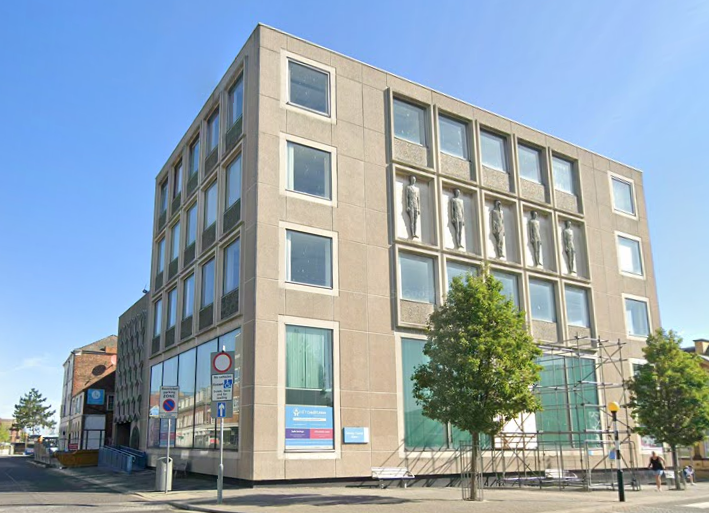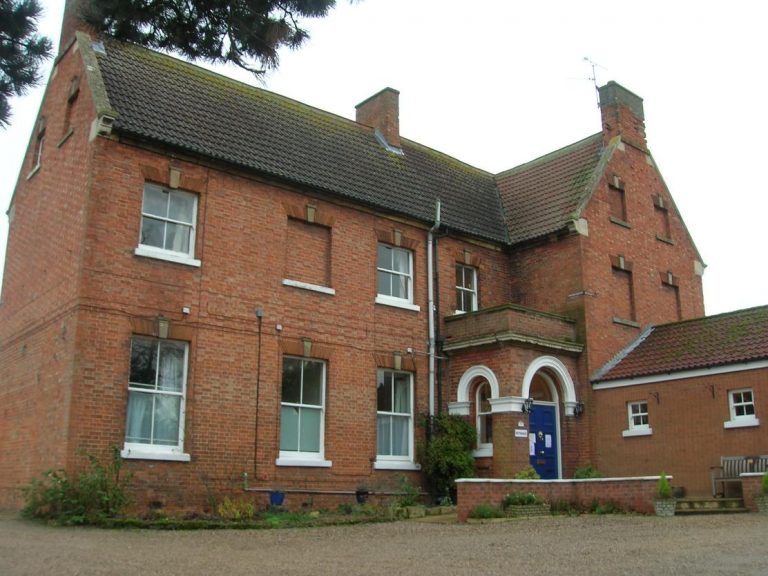Wolds walkers stride out for hospital charity
New council leadership takes shape in Lincolnshire
Lincolnshire County Council has appointed a new leadership team following the 23 May meeting, ushering in a significant change in direction after Reform UK secured a majority with 44 of the 70 council seats in the recent local elections.
Cllr Sean Matthews, representing Tattershall Castle, has been named council leader. He is joined by Cllr Rob Gibson of Spalding East as deputy leader. Matthews brings a background in security, having worked in royalty protection, while Gibson works in housing and homelessness support within the South Holland district.
The new executive team draws on a mix of private and public sector experience. Cllr Natalie Oliver, councillor for Woodhall Spa and Wragby, will head children’s services. She has a background in public engagement with the NHS. Cllr Steve Clegg, who represents the Sleaford division, will oversee adult care and health, building on his work as a healthcare therapist and his prior service on North Kesteven District Council.
Cllr Alex McGonigle of Louth Wolds, a former firefighter will now lead community safety. Growth falls under the remit of Cllr Liam Kelly from Swallow Beck and Witham, a former Army officer who has worked in global security roles over the past decade.
Cllr Michael Cheyne, a chartered engineer representing Boston West, has been appointed to lead highways and transport. Cllr Tom Catton, from Louth South, takes charge of the resources portfolio, bringing extensive experience in finance, HR, and IT across both UK and international companies.
The environment brief goes to Cllr Danny Brookes, a business owner from Skegness who has served on both district and town councils since 2012.
Each executive councillor will be supported by a colleague in their portfolio, reflecting a dual-leadership approach. The appointments mark a decisive shift in leadership tone, with an emphasis on real-world experience and practical service delivery expected to shape the council’s direction going forward.
Image source: Lincolnshire County CouncilCouncil explores pop-up solution amid prolonged Grimsby library closure
Grimsby Central Library remains closed after a March 28 water leak led to the disturbance of asbestos, with no reopening date confirmed. North East Lincolnshire Council is awaiting detailed assessments on the necessary remediation work, including asbestos removal.
While the site remains off-limits, the council is evaluating multiple town centre locations for a temporary pop-up library to maintain public access to core services. The safe removal of books and archives from the existing building is ongoing.
Meanwhile, a broader public consultation into the future of the borough’s library and archive services continues until 9 July. Proposals under review include merging Cleethorpes Library with Cleethorpes Leisure Centre, converting Waltham Library into a volunteer-led operation, and permanently relocating Grimsby Central Library.
Concerns have been raised during public meetings regarding trust in the consultation process and the future of community assets. However, the council maintains that the consultation is in line with national governance standards and clarifies that the temporary closure of Grimsby Library is unrelated to the current consultation.
Final decisions will depend on the outcome of the consultation and will be subject to business case evaluations and the council’s decision-making protocols.
Image credit: Google mapsLincoln College Group gives Moroccan visitors a taste of UK aeronautical training
Motorcycle display team to perform at Revesby Country Fair
Boost for Lincolnshire’s agrifood sector as devolution grants help build skilled workers
Six educational bodies are to benefit from £2.5m thanks to Greater Lincolnshire’s devolution deal to help them build new skills training infrastructure for the agrifood sector.
Lincolnshire care home sold
Rural phone boxes face decommissioning as digital shift continues
BT is moving to decommission underused public phone boxes in rural North Lincolnshire, citing minimal usage and growing mobile penetration. Planning documents reveal that phone boxes in Kirton in Lindsey and Barrow registered just 15 calls combined over a year.
This forms part of a national downsizing effort, as public call volumes have plummeted by 90% over the past decade. The UK’s phone box network has shrunk by 30% in two years, now standing at 14,000 units.
BT plans to entirely remove the unit on George Street, Kirton, while the red box on Cross Street, Barrow, will be locked and stripped of phone equipment. While mobile coverage continues to improve, some communities remain concerned about connectivity gaps and digital exclusion—particularly in rural areas without consistent signal.
Under the company’s kiosk adoption scheme, organisations and councils can purchase decommissioned units for £1. Many are repurposed as defibrillator stations, book exchanges, or micro-hubs for local services.
A public consultation on the Kirton and Barrow proposals is open until 10 July, with final decisions expected to follow shortly after. For businesses reliant on foot traffic or physical cash access, the removal of multi-use kiosks may require operational adjustments.
Image credit: Stock.adobe.com/Brian JacksonNew cancer treatment upgrade for Lincolnshire hospital
Lincoln County Hospital is set to receive a new linear accelerator (Linac) as part of a national £70 million NHS radiotherapy equipment investment programme. The technology upgrade aims to enhance the precision and efficiency of cancer treatment delivery across the UK.
The Linac machine enables more targeted radiotherapy, capable of reaching cancers located in complex regions such as the chest, abdomen, and pelvis. Its use can also reduce the number of treatment sessions required for some patients, supporting improved recovery outcomes and operational throughput.
The investment, announced by the Department of Health and Social Care, will see 28 hospitals across England, selected based on their current use of ageing Linac models over a decade old, benefit from new equipment installations. The rollout is expected to enable up to 27,000 additional radiotherapy treatments annually by 2027.
This move aligns with wider NHS goals to accelerate cancer diagnosis and treatment times, improve patient experience, and modernise service delivery across oncology departments. For healthcare suppliers, equipment manufacturers, and hospital infrastructure partners, the programme represents a significant pipeline of procurement and upgrade opportunities.
Picture credit: Stock.adobe.com/smolaw11











